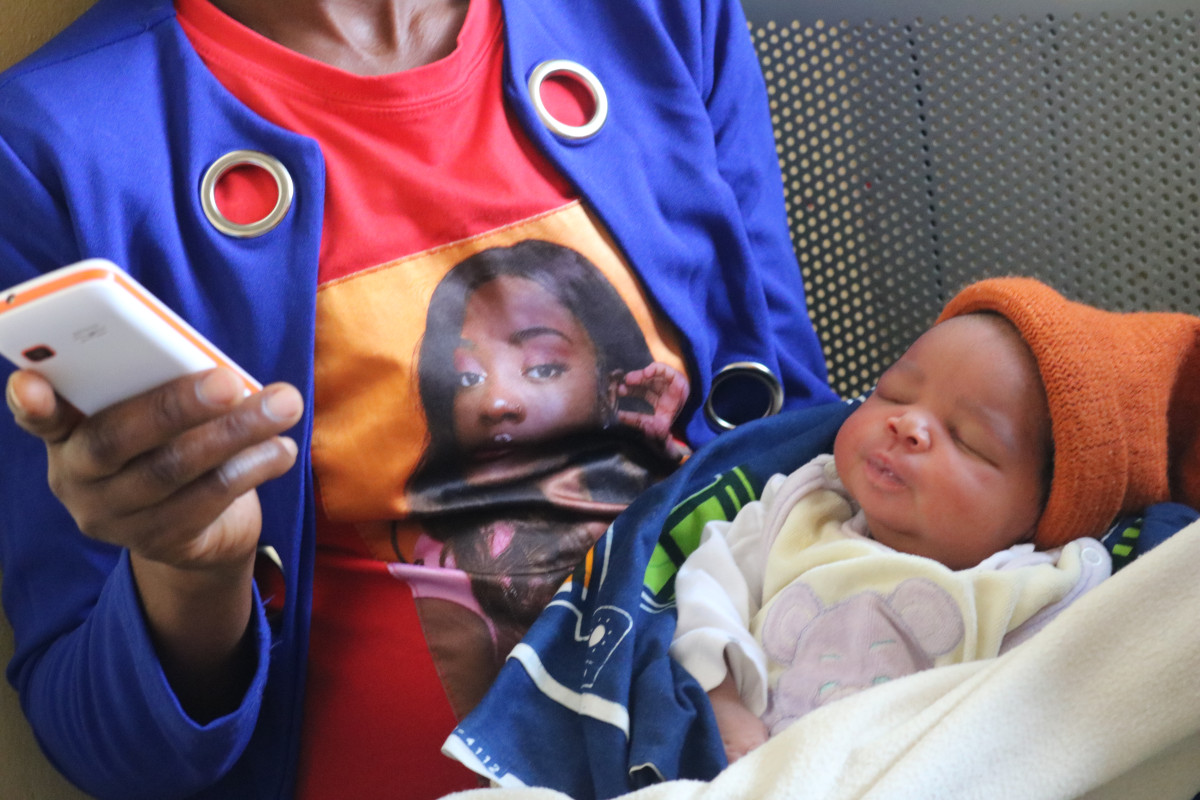Voice messages against HIV/AIDS in Angola
Published: Jun 26, 2024 Reading time: 3 minutes Share: Share an articleWe recently marked the end of the landmark Born Free to Shine project. This project was a milestone in the fight against mother-to-child transmission of HIV in Angola. We worked with traditional midwives, health professionals, communities, and the local government to prevent mother-to-child transmission of the virus.

“Dear family, dear pregnant sister, a special part of your life is just beginning. Your baby will be born in a few months, and you must prepare. Together, we will learn important things about child care through several voice messages you will receive.” That is one of the first voice messages that reached the phones of thousands of Angolan parents within our project, Born Free to Shine.
Angola faces a high incidence of HIV/AIDS. If a pregnant woman is infected with the virus, it does not necessarily mean that the virus will be transmitted to the baby. If a woman takes precautions, the risk of the baby contracting HIV is greatly reduced. That is why we are spreading awareness through voice messages to help prevent mother-to-child transmission.
After three years of dedication and tireless work, the project has come to an end. An initiative of the First Lady of the Republic of Angola, implemented thanks to funding from UNITEL, we helped prevent thousands of pregnant women with HIV from transmitting the virus to their children. Centred on reducing vertical transmission of the virus, improving prevention practices and strengthening the capacities of health professionals, as well as traditional midwives and ADECOS (Community Health Development Agents), the Born Free to Shine project leaves a legacy of hope and care in Angola's three provinces: Luanda, Cunene, and Moxico.
Between 2021 and 2024, our team carried out comprehensive training for Heads of Provincial Offices and Municipal Health Directorates, Health Technicians, Traditional Birth Attendants, and ADECOS. The training was essential for reinforcing the knowledge and skills needed to provide clinical and humanised care to pregnant women living with HIV. In addition, several workshops were held in collaboration with local civil society organisations to strengthen community initiatives for HIV/AIDS prevention, encouraging adherence to Anti-Retroviral Therapy (ART) and institutional childbirth. These partnerships enabled the project to reach a wide range of women and communities, thus ensuring a comprehensive, sustainable impact.
Prevention and awareness-raising are crucial, so we involved midwives and community health workers in disseminating messages related to the "Born Free to Shine" programme through community talks. This joint effort resulted in a total of 47,490 people being sensitised over the course of the project. In addition, 250 health technicians were trained over the three years, as well as 160 ADECOS and traditional midwives. These figures reflect the commitment and tangible impact of the project on the lives of the communities.
To achieve these significant results, we had the valuable support of our partners at the National Institute for the Fight Against AIDS (INLS), Provincial Offices and Municipal Health Directorates, Health Units, ADECOS and traditional midwives.



